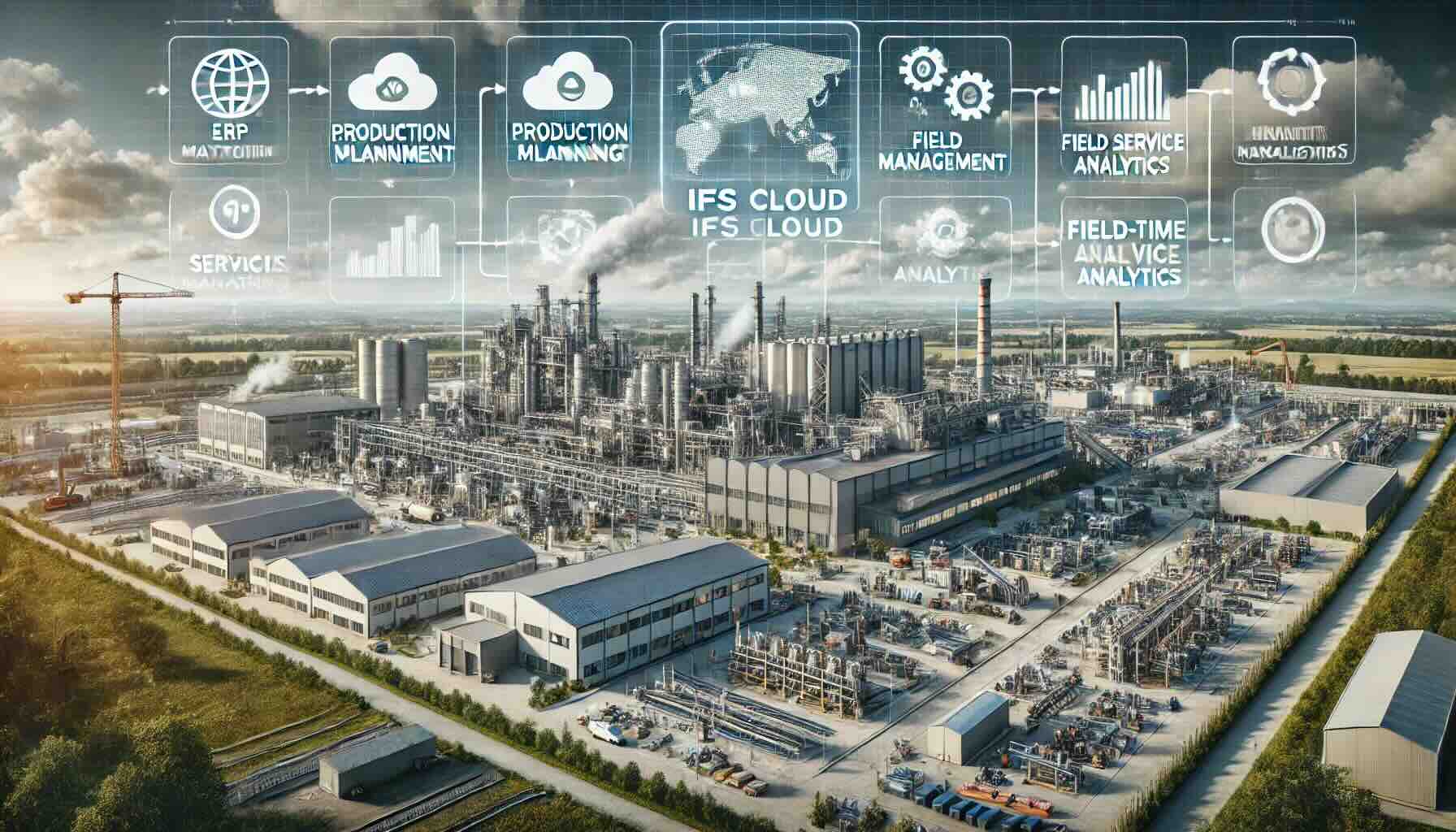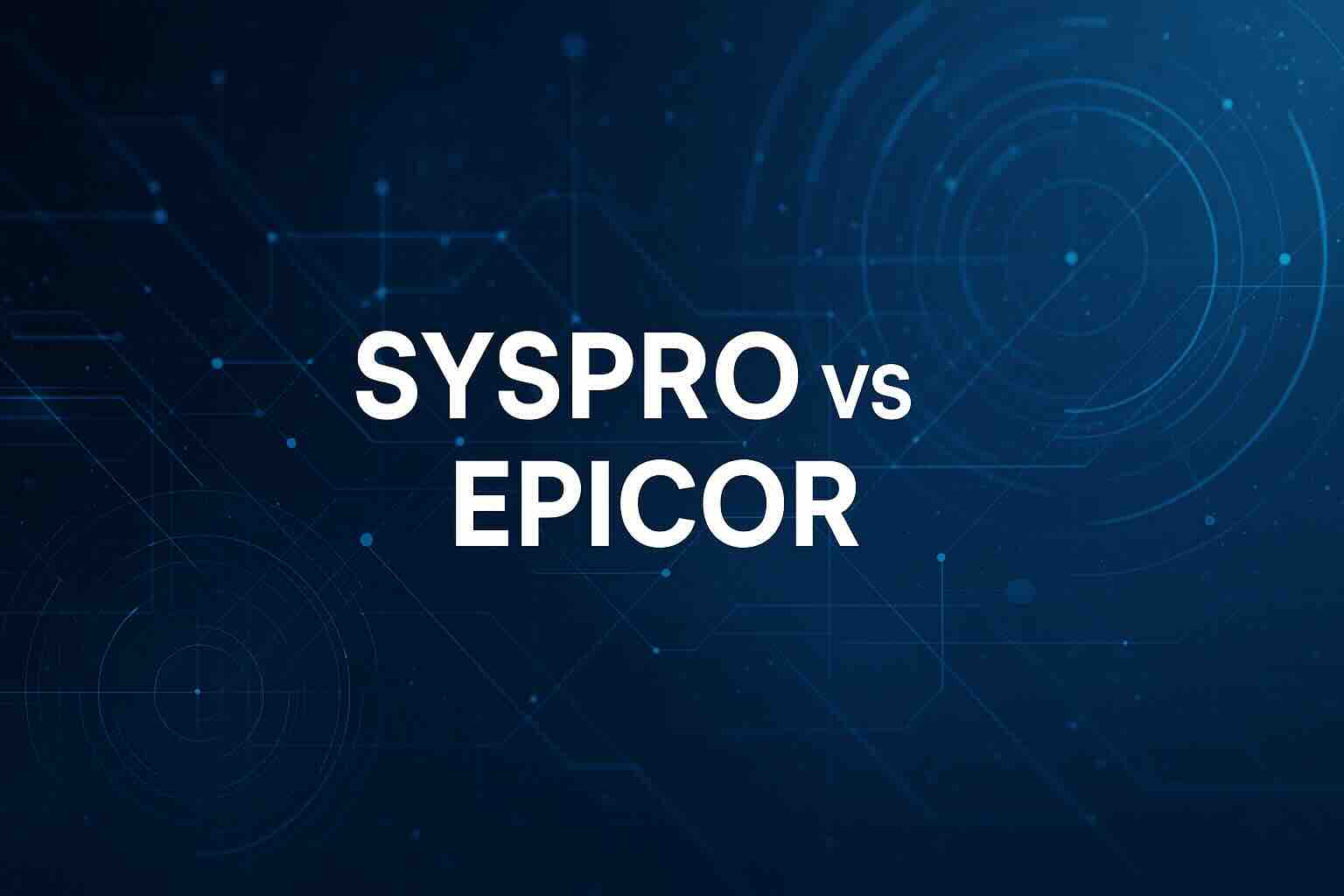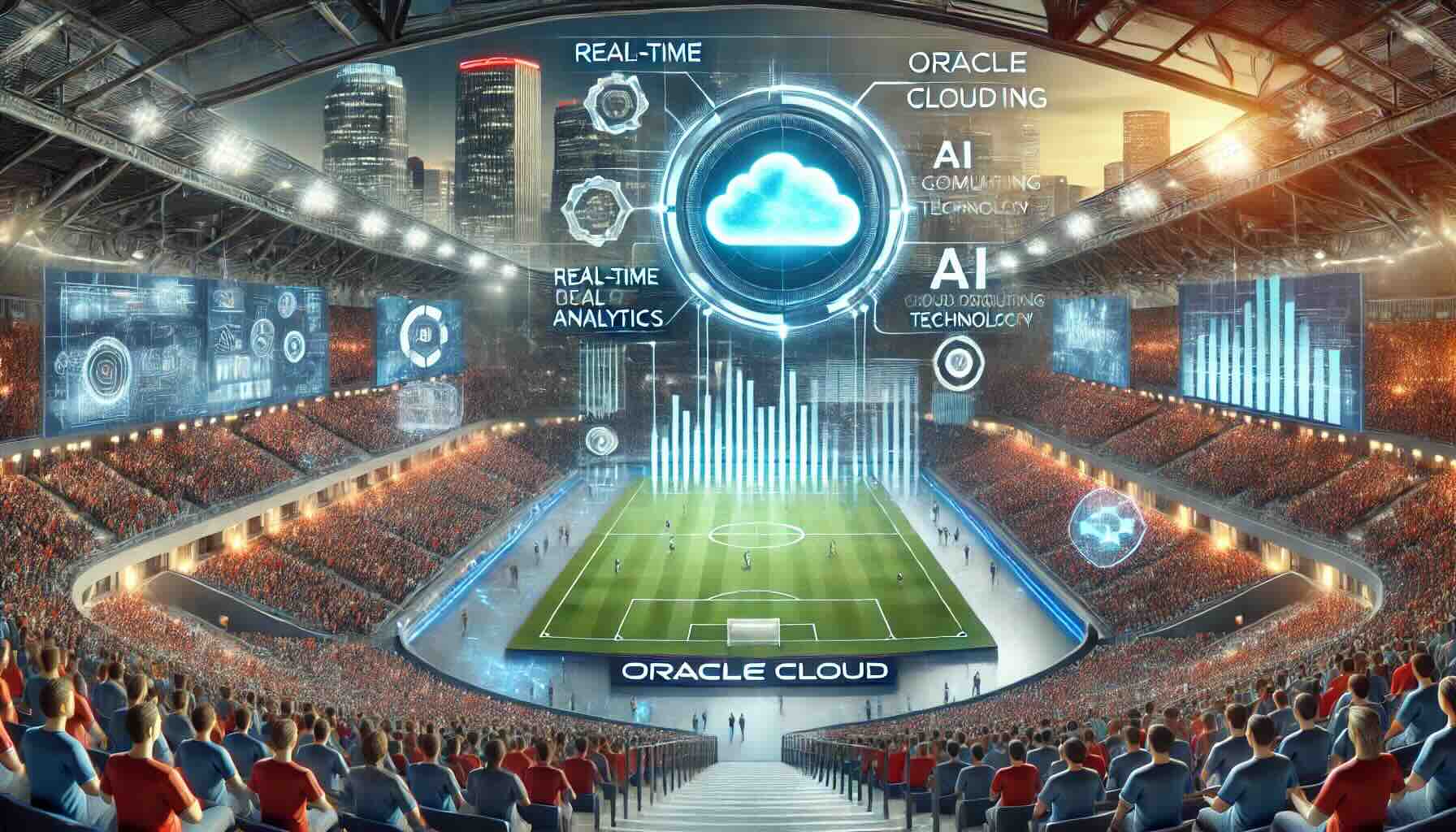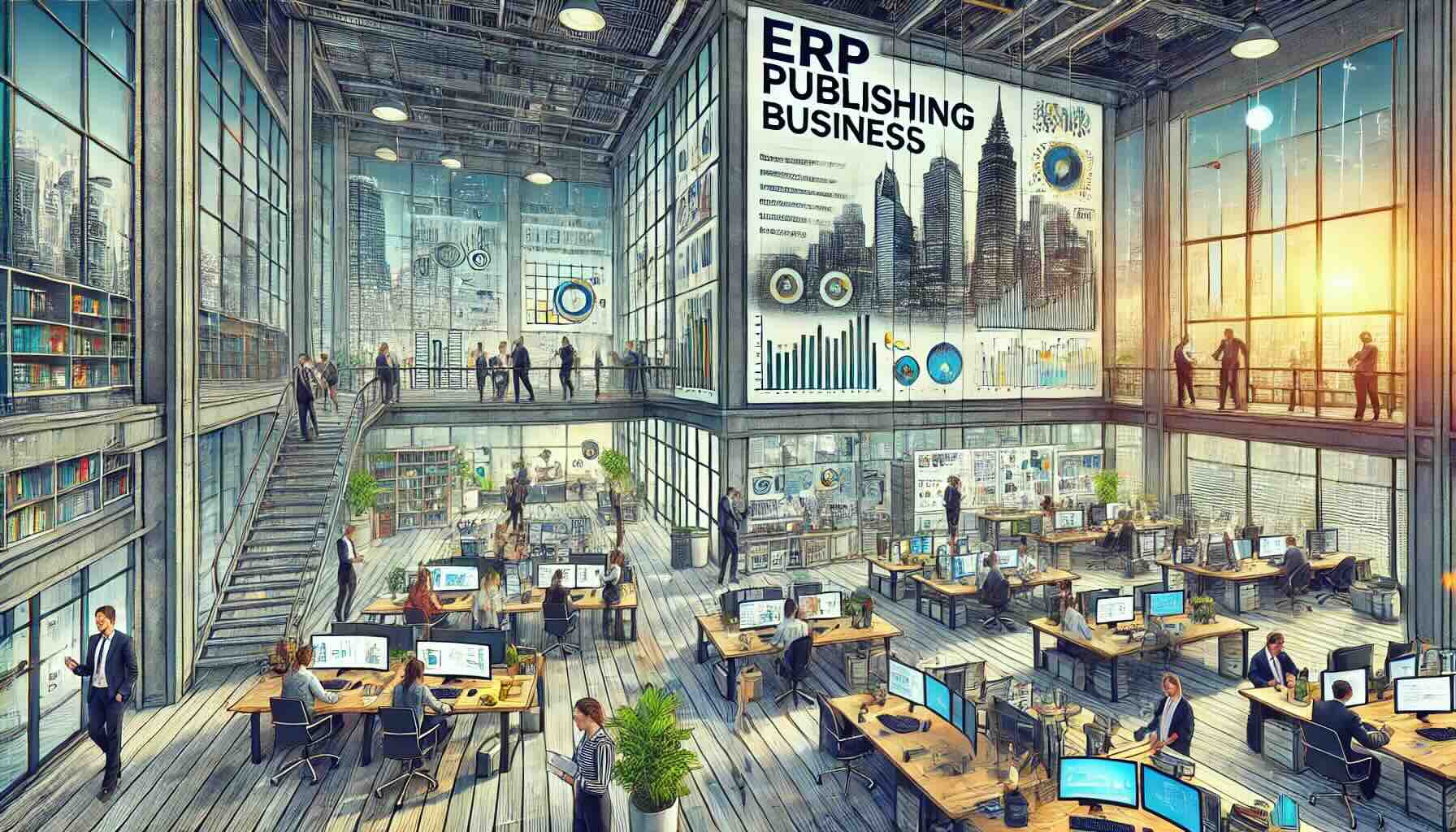How to Choose the Best ERP for Manufacturing Businesses
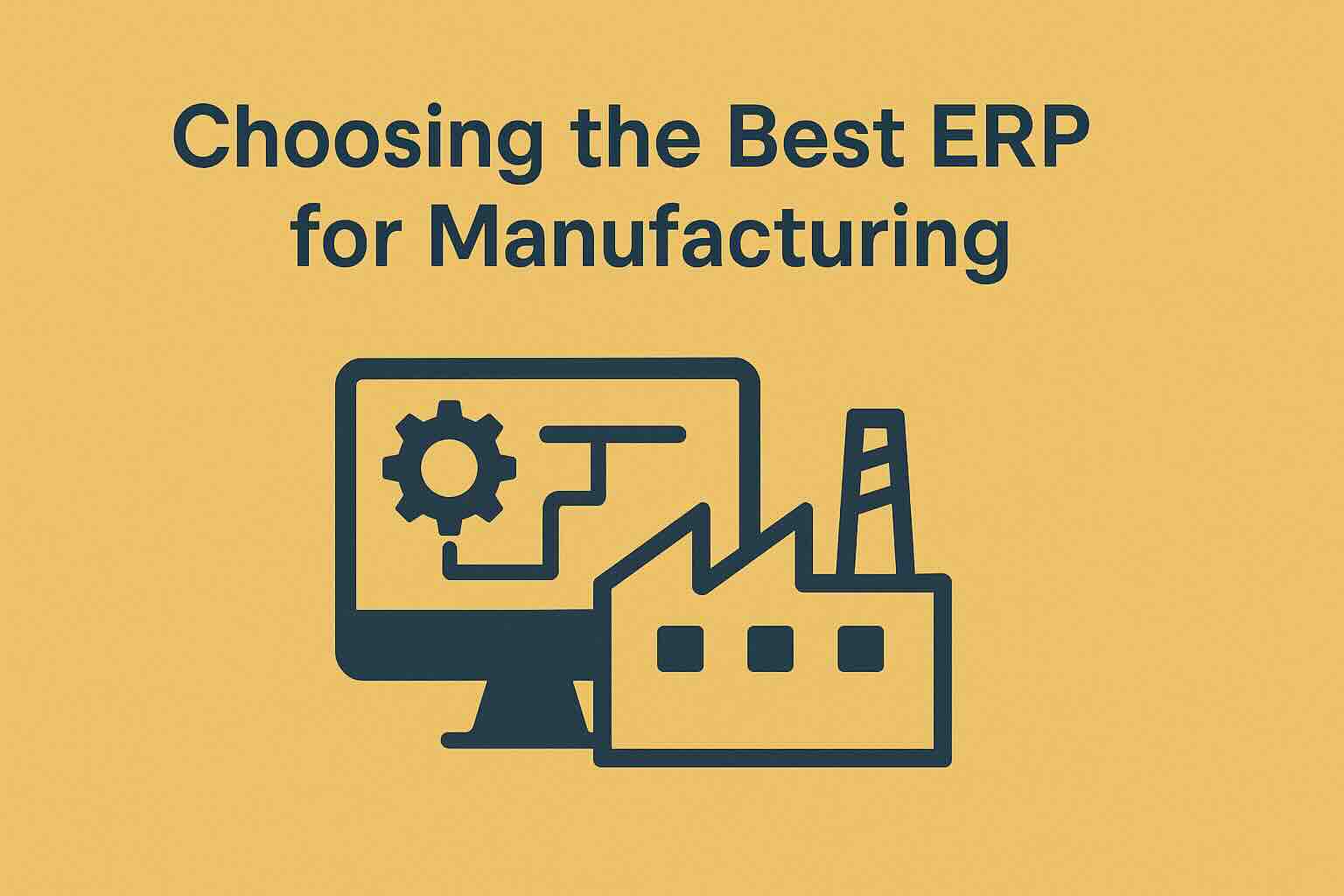
Choosing the right ERP (Enterprise Resource Planning) system can make or break a manufacturing business. From managing supply chains and inventory to streamlining production and ensuring compliance, ERP software plays a pivotal role in operational efficiency and profitability. However, with so many options on the market, how to choose the best ERP for manufacturing can feel overwhelming.
This guide outlines the key factors manufacturers should consider to make an informed ERP selection tailored to their specific needs.
1. Understand Your Business Requirements
Before evaluating ERP vendors, take a deep dive into your current processes, challenges, and goals. Identify your unique manufacturing needs such as:
-
Make-to-order vs. make-to-stock processes
-
Complex supply chain management
-
Quality control and compliance requirements
-
Real-time inventory tracking
-
Integration with CAD or PLM systems
List your must-have features and categorize them by importance. This will help narrow down your options and ensure the ERP system supports your operational model.
2. Prioritize Industry-Specific Features
Generic ERP solutions may offer broad functionality, but manufacturing businesses benefit most from platforms designed with industry-specific features. Look for ERP systems that include:
-
Bill of Materials (BOM) management
-
Production planning and scheduling
-
Shop floor control and automation
-
Material Requirements Planning (MRP)
-
Equipment maintenance tracking
-
Lot and serial number traceability
A solution tailored to manufacturing will help reduce customization costs and improve implementation speed.
3. Evaluate Integration Capabilities
Your ERP won’t operate in isolation. It should seamlessly integrate with other tools and systems you already use, including:
-
Accounting software
-
CRM platforms
-
Inventory management
-
E-commerce systems
-
Supply chain partners
APIs, EDI support, and pre-built connectors can dramatically reduce integration complexity and cost.
4. Consider Scalability and Flexibility
Your business will evolve, and your ERP system should be able to grow with it. Consider:
-
Can the ERP support multiple facilities or product lines?
-
Does it allow for easy configuration or modular upgrades?
-
Is it adaptable to changes in your workflow or industry regulations?
Choosing a scalable ERP ensures you won’t outgrow the system as your operations expand.
5. Assess Cloud vs. On-Premise Deployment
Deployment type is another crucial decision. Cloud-based ERP systems offer advantages like lower upfront costs, automatic updates, and remote accessibility. On-premise solutions, while more customizable, come with higher initial costs and maintenance responsibilities.
Cloud ERP is often the better fit for small to mid-sized manufacturers looking for cost-efficiency and ease of deployment. However, manufacturers with strict data control needs may still prefer on-premise systems.
6. Investigate Vendor Reputation and Support
Choosing the best ERP also means choosing the right vendor. Look for providers with:
-
A solid track record in the manufacturing sector
-
Strong customer references and case studies
-
Robust training and support offerings
-
A clear implementation methodology
Ask about the vendor’s average implementation time and whether they provide post-go-live support or dedicated customer success managers.
7. Factor in Total Cost of Ownership (TCO)
ERP implementation is a major investment, so it’s vital to understand the full cost. TCO includes:
-
Software licensing or subscription fees
-
Implementation and customization costs
-
Hardware (for on-premise deployments)
-
Training and ongoing support
-
Future upgrades
Avoid focusing solely on the upfront price. A cheaper system may end up costing more in the long run if it lacks essential features or requires heavy customization.
8. Top 5 ERP Solutions for Manufacturing Businesses
To help narrow your search, here are five top-rated ERP solutions for manufacturers, along with who they’re best suited for:
-
NetSuite ERP
Best for: Small to medium-sized manufacturers looking for a cloud-based, scalable solution.
NetSuite offers strong financials, supply chain, inventory, and production management in one unified platform. It’s ideal for growing businesses that need flexibility and global capabilities. To find out more about NetSuite you can visit this link. -
SAP S/4HANA
Best for: Large enterprises or global manufacturers with complex operations.
SAP provides advanced manufacturing capabilities, including AI-driven insights, IoT integration, and real-time analytics. Best for organizations with high customization needs and large IT teams. To find out more about SAP S/4HANA you can visit this link. -
Microsoft Dynamics 365 Supply Chain Management
Best for: Mid to large manufacturers with a strong Microsoft ecosystem.
It integrates well with Office 365 and Azure and offers powerful tools for production planning, asset management, and predictive analytics. To find out more about Microsoft Dynamics you can visit this link. -
Epicor Kinetic (formerly Epicor ERP)
Best for: Discrete manufacturers and job shops.
Epicor Kinetic is known for deep industry-specific features, including engineer-to-order and make-to-order workflows, with both cloud and on-premise deployment options. To find out more about Epicor you can visit this link. -
Odoo Manufacturing
Best for: Small manufacturers and startups seeking an affordable, open-source solution.
Odoo is highly modular, offering flexibility at a low cost. It’s great for businesses looking for a customizable ERP without a heavy price tag. To find out more about Odoo you can visit this link.
9. Request a Demo and Involve Key Stakeholders
Before finalizing your decision, schedule product demos and involve representatives from departments like production, finance, procurement, and IT. They’ll provide valuable insights into usability and functionality.
During the demo, evaluate:
-
User interface and ease of navigation
-
Mobile accessibility
-
Reporting and dashboard capabilities
-
System performance and responsiveness
A hands-on trial helps ensure the ERP solution aligns with your team’s day-to-day needs.
Final Thoughts
If you’re wondering how to choose the best ERP for manufacturing, the key lies in understanding your business processes, prioritizing manufacturing-specific functionality, and evaluating vendors for long-term partnership potential. By taking a strategic, informed approach, you can select an ERP system that drives efficiency, reduces costs, and supports your growth objectives.
Choosing the right ERP can transform your business. With our AI-powered Compare ERP tool, you can quickly explore and compare solutions tailored to your needs. Get a personalized recommendation in less than five minutes. Our advanced engine analyzes millions of data points across 100+ ERP solutions, delivering your top three picks based on your business priorities.
Best of all, it’s completely free. Take the first step toward streamlining operations and boosting productivity – start comparing today!


